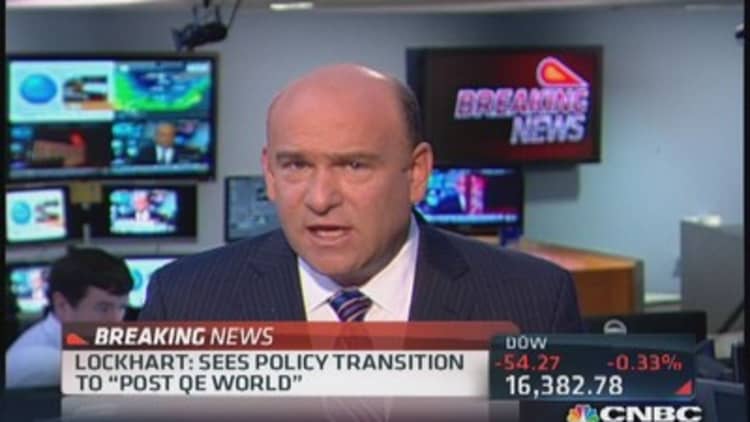Congress is expected this week to complete work on a $1.1 trillion spending bill that will keep the government's doors open for the duration of the year. Talks could still hit a snag, but at this point it seems like there will be no government shutdowns to threaten the economy in 2014.
So should we all just forget about Washington as a big drag on what looks like a rapidly improving economy despite a weak jobs number on Friday?
Not exactly.
Beyond the budget deal, partisan rancor in D.C. seems like it is as bad, if not worse, than ever. And that means the next big issue, raising the $17 trillion federal borrowing limit, may be tougher than many currently expect.
Treasury Secretary Jack Lew says the U.S. will need to raise the debt limit by late February or early March at the latest and that so-called "extraordinary measures" to forestall default may not work as well this time around. The Congressional Budget Office has said the date might be somewhat later than what Treasury suggests but says there is no guarantee of extra time beyond March.
The Senate has already proved itself entirely unable to come up with a deal to extend long-term unemployment benefits despite fairly significant bipartisan support. Republicans are demanding the $6.5 billion extension be paid for, something Democrats don't like but might be willing to do by adding a year to the sequestration spending cuts in 2025. That's way too far away for many in the GOP, who don't believe the cuts will really materialize. Plus they want to be able to offer amendments to the jobless benefits bill, which Majority Leader Harry Reid has refused to allow.
So the measure remains stuck in a Senate that is once again bickering over arcane procedure. Even if the measure makes it through the Senate, it faces a very uncertain future in the House.
(Read more: Wall Street sees Christie down, but not out)
And there is almost no hope for any other significant economic legislation to move through this Congress. President Barack Obama will push hard in his State of the Union address to raise the minimum wage. Republicans will almost certainly turn that effort back. There is also no path forward for trade legislation, tax reform or immigration reform.
But certainly Congress should at least be able to raise the debt limit without a scary brush with default, right? Don't bet on it.
The rancorous start to the year does not bode well, nor does the timing of the fight. It will likely come in April and May as many Republican members of Congress will be facing primary challenges from the right that will make it very difficult for them to support any debt limit hike that does not include significant spending cuts and possibly entitlement reforms.
Many Republicans also remain committed to using whatever levers they have to force changes to Obamacare. And with shutdowns off the table, the debt limit presents the next opportunity.
(Read more: Democrats' 2014 weapon? The divide between rich and poor)
So conditions will exist that could lead the GOP to make policy demands in return for a debt limit hike that the White House and congressional Democrats will roundly reject.
Indeed a serious debt limit crisis may be more likely than not at this point.
The conventional wisdom holds that House Speaker John Boehner has now triumphed over his restive tea party base with the budget agreement. This argument holds that Republicans, burned by the shutdown, will not want to risk another big hit to their national brand with a debt limit fight.

But they could just as easily decide that fighting for more spending restraint in the face of the $17 trillion debt is good politics for them even with annual deficits shrinking rapidly in the near term.
Democrats at the same time will be pushing forward with their midterm strategy, to be laid out in the State of the Union, of focusing on income inequality through a minimum wage hike and other government investments. Giving in to any GOP demands on the debt limit would run directly counter to that effort.
(Read more: Feds to probe post-Sandy ads that starred Christie)
So the recipe is there for another ugly battle. And it could come at an especially bad time if the weak December jobs report, showing a gain of just 74,000 jobs, proves to be more than a weather-impacted anomaly.
If the economy does once again hit a rough patch this spring, the last thing we will want to see is another confidence-busting brush with default. And yet we could get exactly that.
—By Ben White. White is POLITICO's chief economic correspondent and a CNBC contributor. He also authors the daily tip sheet POLITICO Morning Money [politico.com/morningmoney]. Follow him on Twitter @morningmoneyben.


